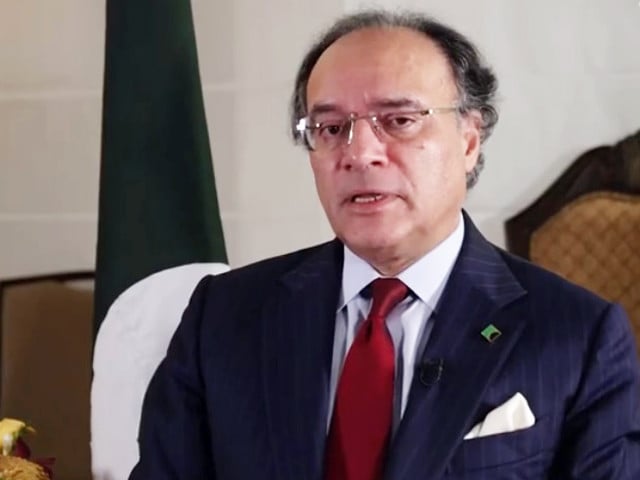Finance Minister acknowledges the country’s unsustainable tax-to-GDP ratio of 9-10pc and stressed the need for structural reforms in taxation and the overhaul of the FBR

By our correspondent
ISLAMABAD: Finance Minister Muhammad Aurangzeb addressed concerns regarding Pakistan’s economic situation, including the country’s loan agreement with the International Monetary Fund (IMF). He reassured the audience that there are no undisclosed conditions in the deal with the IMF and emphasized that despite some countries being reluctant to extend financial assistance, Pakistan still has key allies like China and Saudi Arabia that are keen to invest.
Aurangzeb highlighted the importance of private sector involvement in driving economic progress and urged the business community to move away from practices like “speed money,” which can undermine the country’s stability. Focusing on Pakistan’s investment opportunities, the finance minister pointed out that the second phase of the China-Pakistan Economic Corridor (CPEC) is shifting toward business-to-business (B2B) collaboration, following the completion of major infrastructure projects. He also stated that while the country’s currency has stabilized and foreign exchange reserves are expected to cover three months’ worth of imports by mid-2024, inflation remains a concern.
Aurangzeb stressed that the government is working to ensure that any improvement in inflation directly benefits ordinary citizens. Addressing Pakistan’s tax system, the minister acknowledged the country’s unsustainable tax-to-GDP ratio of 9-10 percent and stressed the need for structural reforms in taxation and the overhaul of the Federal Board of Revenue (FBR). He highlighted the necessity of improving digitisation within the tax system to streamline the process and combat corruption, particularly in refund mechanisms.
Further, he pointed out the government’s efforts to foster foreign direct investment (FDI) through a B2B approach, with the private sector taking the lead, especially in the privatisation of state-owned enterprises (SOEs), such as Pakistan International Airlines (PIA). Aurangzeb also noted that Pakistan plans to issue Eurobonds next year and is in discussions about issuing Panda bonds. However, he cautioned about the rapidly growing population, which now stands at 240 million with an annual growth rate of 2.55 percent. He warned that this could create severe challenges if growth continues unchecked, particularly in terms of resources and sustainability.
In closing, the finance minister emphasized the importance of energy, tax, and institutional reforms for sustainable economic growth. While acknowledging the role of welfare initiatives, he reiterated that taxes are crucial for the long-term development of the country. By allowing the private sector to take a leading role in economic affairs, particularly through the privatisation of SOEs, the government hopes to alleviate fiscal pressure and foster a more efficient and resilient economy.



